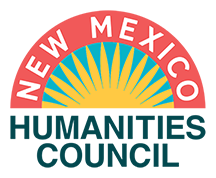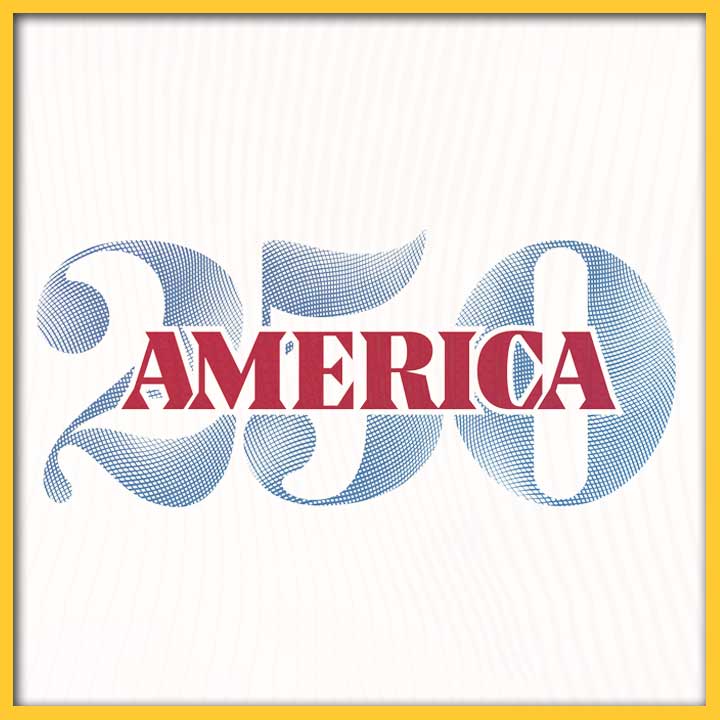
SPAIN AND THE U.S. WAR OF INDEPENDENCE
As we approach the U.S. Semiquincentennial of July 4, 2026 I think it is important that we in New Mexico reflect on the influence the Spanish Empire had on ensuring the success of the British colonist “War of Independence.”
PHOTO CAPTION: America 250 logo. Credit: Library of Congress.
SHARE:
Many people in the United States forget about the Spanish presence in North America prior to the formation of the USA. As we approach the U.S. Semiquincentennial of July 4, 2026, I think it is important that we in New Mexico reflect on the influence the Spanish Empire had on ensuring the success of the British colonist’s “War of Independence” and what we have learned from some of Spain’s concerns with the secular British rebel ideas that are relevant to today’s world.
In the North American Southwest, New Mexico was the northernmost settlement of the Spanish Empire from 1598 to 1821. The Spanish already had a permanent presence in New Mexico for 178 years when the 13 British colonies declared their Independence and formed the United States of America in 1776.
From 1598 to 1776 New Mexico had been an isolated, almost forgotten Spanish frontier mission outpost. The Spanish meticulously reported that Comanches, Utes, and Apaches surrounded New Mexico, and they complained that they caused considerable trouble.
By 1772 the Reglamento para presidios went into effect establishing a defensive line of presidios from the Gulf of California into Texas attempting to stave off other imperial encroachment. In 1776 it was ordered that the northern provinces of New Spain that included New Mexico be removed from the direct jurisdiction of the viceroy of New Spain and placed under a new administrative unit called the Provincias Internas.
This meant more direct external control and integration into Spain’s colonial empire, lost was the frontier autonomy of the once isolated region. Spain sought to consolidate its power in North America, a response to the rising threat of the British Empire on the continent.
The genesis of Spain’s aid to the British North American colonist was Spain and France’s defeat during the Seven Years’ War, 1756-1763. In 1761 Spain and its Catholic ally France pledged mutual support to each other in perpetuity with the Bourbon Family Pact. Great Britain’s defeat of French forces in the 1760 Montreal Campaign resulted in the loss of French Canada, and ceding of French Louisiana to Spain in 1762. The 1763 Treaty of Paris ended hostilities and awarded Britain nearly all of the French Empire in North America. The mighty British Empire was now a growing easterly border threat to the Spanish North American empire.
As the imperial maxim goes: “the enemy of my enemy is my friend.” The Spanish decided to hinder British imperial interest by supporting the disaffected British colonist in North America through their alliance with France. The situation is very similar to the current U.S. military aid to Ukrainian forces as the U.S. looks to check Russian interest in the region.
Spain was offered favored trade nation status with the United States if they would provide war materiel and aid to the British revolutionaries. Spain loaned money and gave supplies clandestinely. Spain’s material aid was sent via ships to the British colonial harbors from the Caribbean, and New Orleans also became a main port of entry for Spanish supplies.
By 1779 Spain also diverted British concentration of forces away from the beleaguered British American colonist by starting other military fronts. The Spanish governor of Louisiana, Count Bernardo de Galvez, received orders to take back forts the Spanish had lost to the British in 1763. Spain recaptured Pensacola, Florida, regained the Bahamas in the Caribbean, and fought British pirates from Cartagena through Havana and off European shores of Cadiz. The Spanish navy eventually kept the English in the Caribbean and Gulf of Mexico from reinforcing Cornwallis at the decisive Battle of Yorktown in October 1781.
Spain helped defeat the British during the “American” revolution, but they were tentative in their support of some of the ideas of the newly formed nation of the United States. The Spanish enlightened despot Charles III understood the dangerous example set forth by British American revolutionaries as his successors would soon lose control of all the Spanish American empire through elite-led popular uprisings.
Although the Spanish opposed the British Empire they had shared ideas of Monarchy and Empire. They both questioned the idea of separation of church and state arguing how could one separate the function of government from God’s will and the guidance of religion? It is easy to see the irony in such a statement as empires are ruthless in their handling of native people and many would ask where was God’s will and guidance during the Spanish and British imperial projects.
Catholic Enlightenment thinkers argued for the need of enlightened monarchs — what Plato called “philosopher kings” — trained to rule, guided by righteousness to ensure God’s will of justice and fraternity for all men and perhaps even women. Protestant revolutionary enlightenment ideas were viewed as a threat to civil order as they argued for the end of the monarchs and for elected officials, which the Catholic monarchies believed would lead to rule by the uneducated mob. They believed that secular leaders would have no moral or religious compass, and instead be guided by their own natural instincts of greed.
You already see some of this moral ambiguity within the Protestants and Deists of the British American colonies who claimed to be enlightened, wanting liberty for themselves from the king while still enslaving Black Africans, and seeking to annihilate the natives. The British colonial elite sought separation of church and state and wanted to bring down the king, yet they quickly developed their own fiefdom of checks and balances and voter suppression to ensure a stranglehold on power and to protect themselves from the masses.
In hindsight, reviewing Richard Nixon’s and subsequent presidential administrations after the U.S. Bicentennial celebration, maybe the Spanish monarch’s concerns over the upstart nation were justified. As the Spanish enlightenment thinkers projected, it is easy to see that the U.S.A. has been ruled by unscrupulous scoundrels who seem to have no moral compass. During the 18th century it was believed that the ideas of the secular Enlightenment and elected governance, if left unchecked, would pave the way for continual world unrest, and today many of us in the U.S.A. continue to grow tired of “elected” rulers’ support for invasion, endless war and suffering.
As we approach the U.S. Semiquincentennial on July 4, 2026, I think it’s important that we in New Mexico, who were invaded by the U.S. in 1846, reflect on the influence the Spanish Empire had on ensuring the success of the British colonist “American Revolution.” It is also important to reflect on how empires led by a monarch or a representative republic — secular or religious — still fall short and curtail God’s will of justice and fraternity for all. Monarchs and elected governments are prone to injustice and not immune from corruption.
PASA POR AQUÍ
ADDITIONAL BLOG ARTICLES
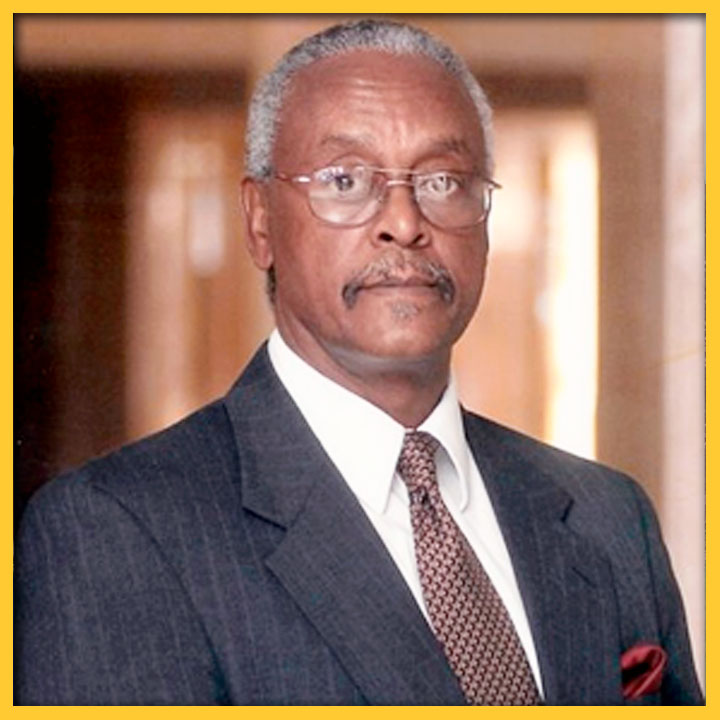
REFLECTIONS ON THE LOSS OF A NEW MEXICO CIVIL RIGHTS LEADER
By Carlyn N. Pinkins, M. A.
“The Dr. Harold Baileys of the world should inspire us all to do what we can to leave our communities, our towns and cities – our great state – better places than we found them. While we do our part to create the Dr. Harold Baileys of the future, we should also strive to make sure that the Dr. Harold Baileys of our past and present are never forgotten.”
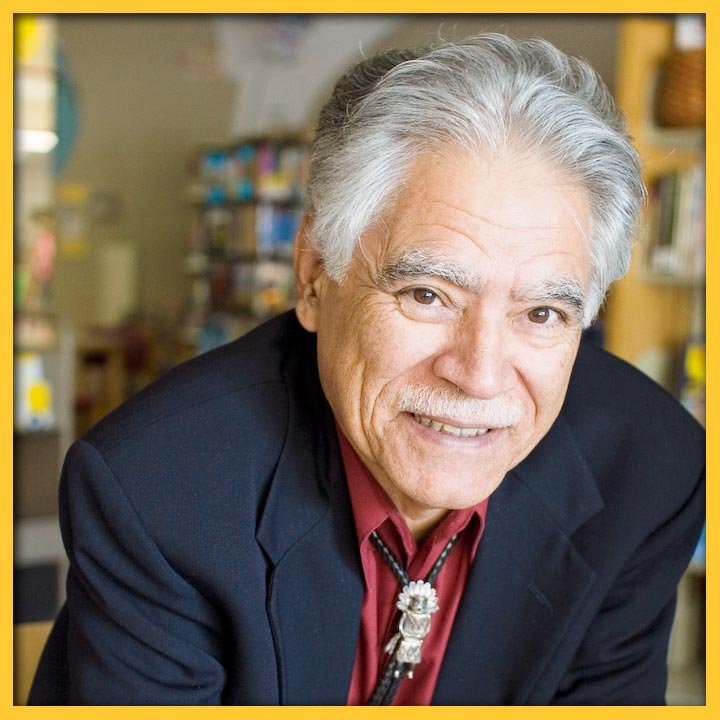
RUDOLFO ANAYA: CATCHING CULTURES IN BLESS ME, ULTIMA
By Richard Wayne Etulain
Anaya greatly expands the cultural contributions of his novel by combining the usual (Bildungsroman—growing up theme) with the unusual (complex, diverse New Mexico Hispanic culture)…
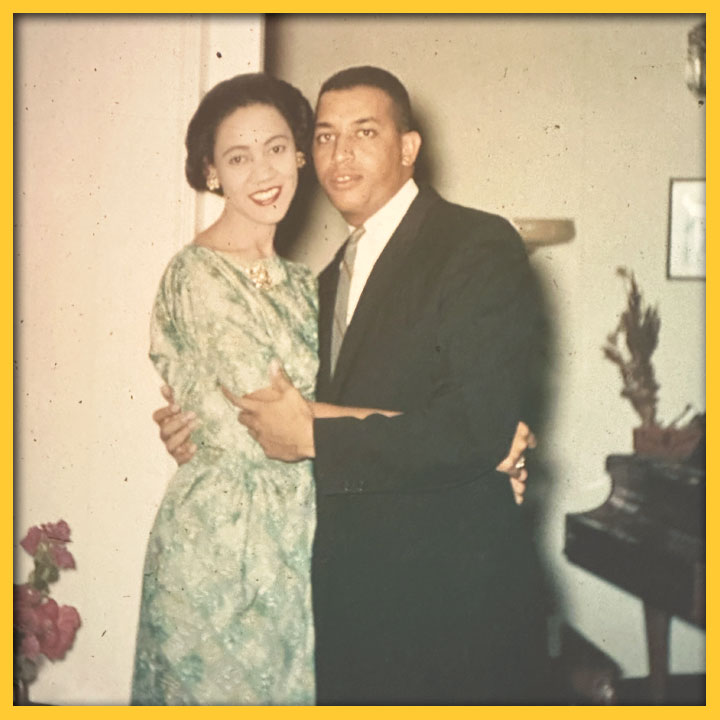
UP BY OUR BOOTSTRAPS; TWO LIVES IN RETROSPECT
By Finnie Coleman
I found myself fascinated with Dr. McIver’s transition from the stultifying hopelessness of the Segregation Era to the wistful hopefulness of the Civil Rights Era…
SHARE:
DISCLAIMER:
Any views, findings, conclusions or recommendations expressed in this blog post/article does not necessarily represent those of the New Mexico Humanities Council or the National Endowment for the Humanities.
ABOUT THE AUTHOR:

ELOY GARCÍA
Dr. Eloy García, is a nuevo mexicano educator, attorney and peace activist. Born and raised in Albuquerque and a veteran of the U.S. Army. He has been involved with popular education and human rights over 20 years, having worked with International Human Rights and Social Justice NGOs in the United States, Latin America, and the Middle East.
